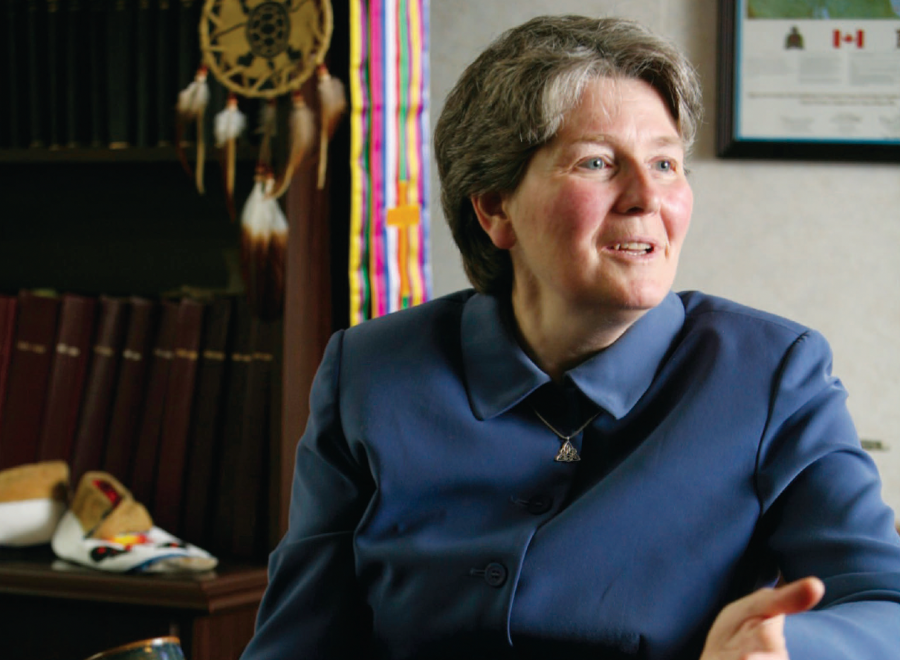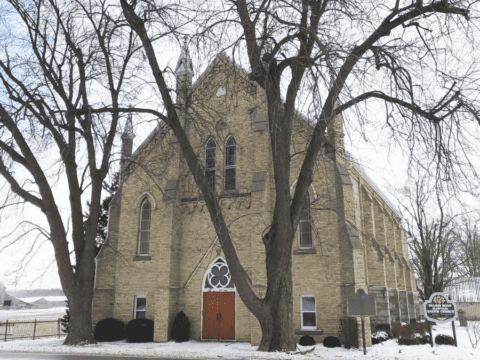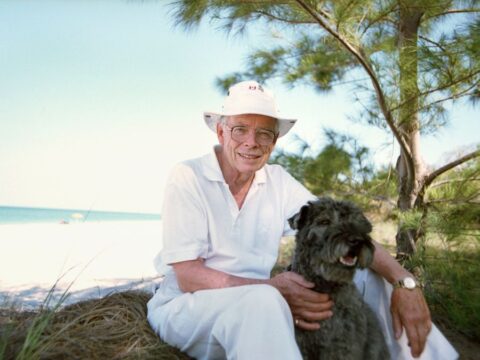With the 40th General Council approaching and nearly three years as the United Church’s top administrator behind her, general secretary Nora Sanders speaks with David Wilson about the church’s problems, priorities and possibilities.
DAVID WILSON: What has been the biggest pleasant surprise so far?
You may unsubscribe from any of our newsletters at any time.
NORA SANDERS: I don’t know that it’s much of a surprise, but it’s the people across the church who make it so fulfilling. I get a privileged look at so many big and small efforts being made in the name of our church and in the name of Jesus Christ. It’s really uplifting.
DW: What’s the biggest unpleasant surprise?
NS: Until coming to work here, most of my activity in the church was at the congregational level, where you’re mostly thinking about faith development and faith in action. Here, we put a lot of time and energy into processes. Obviously the General Council Office is the place for doing that, but I sometimes think we get distracted by our processes.
DW: Do you see the day coming when the processes might become self-sustaining, allowing the church to move forward on other things?
NS: Don’t get me wrong — processes are there to let us do the work of the church. Whether that means adjusting, streamlining or simply accepting what they are and using them to carry out the work of Jesus Christ, we need them. But we also need to remember that processes are not the reason we exist.
DW: Did your previous positions in the senior levels of the civil service prepare you for the challenges you have found in this job?
NS: There are parallels. There’s the challenge of trying to remember that bureaucracy exists for bigger purposes. And in both government and the church, there are people with large, idealistic visions who want to accomplish a lot and change the world.
DW: What does The United Church of Canada do really well right now?
NS: A lot of the really great stuff is happening in congregations and community ministries, with exciting and faithful leadership, and people contributing to the life of their communities. Part of what we’re doing at the General Council Office and at the General Council Executive is to try to make sure that congregations are supported. We’re trying to make up-front decisions about how to best use the resources available to us instead of ducking the hard choices and being content with a little less of everything.
DW: Is there something the church could be doing better?
NS: We have to get way more intentional about developing new leadership. Part of that is identifying barriers to bringing people into ministry and other forms of leadership. If the overall effect of what we do makes us not as welcoming as we could be, or if we’re not calling people to the places they’re really needed, then we’re in trouble.
DW: Second-career ministers have helped to fill the vacuum created by fewer young people entering the ministry. But clergy shortages still loom. What’s the solution?
NS: Some wonderful ministers have come to us from other careers, and we’ve been so lucky to have their leadership. But that can’t be our primary avenue for recruitment because those ministers are, by definition, a shorter-term offering. So the number of older ministers versus the number of younger ones is one of the biggest things we have to deal with. Ministers who start when they’re young and carry on right through their careers bring a different perspective. And it makes sense that younger leadership might interest younger people in coming to church.
DW: Our reader survey showed that respondents admire their ministers a great deal. I wonder if prospective ministers realize this?
NS: We probably need to find a way to talk about that with people who might be considering ministry as a vocation. I came from the law profession, and surveys say the public hates us. Perhaps our society doesn’t like to give anyone special status, and maybe that’s not a bad thing. But certainly the notion that you can enter a career, a vocation, a calling, where you truly have a chance to make a difference in people’s lives is something that needs to be held up.
DW: You inherited the Emerging Spirit campaign, which was designed to build an interest in the United Church among young adults. Should the church do more out-of-the-box work?
NS: Yes. We have to be willing to do bold things. If following Jesus means sharing the good news that he brings, we have to figure out what that means in today’s world, and we have to get out there and do it. Sitting in a beautiful old building on Sunday, waiting for people to come, isn’t enough anymore. Let’s try some different avenues for reaching people.
DW: You have presided over two rounds of restructuring involving significant job and program cuts. Is a reshaping of the United Church driving these changes or are these changes driving the United Church?
NS: In a simple way, they’ve been related to funding. Funding limitations make you look at the heart of what we care about, and whether our resources are contributing to it.
But change is always hard. As somebody said earlier, it’s not a matter of picking between good things and bad things; we’re picking between good things and good things. As a church, that’s something we haven’t been very good at — we’d like to be everything to everybody, but I’m not sure you ever can be.
We’re at an exciting time where choices have to be made, where we will be finding new directions. It’s true for all aspects of life in our society, so why wouldn’t it be true for church as well?
DW: What will be the most important thing to come out of General Council this summer?
NS: A sense of hope. If you look at some of the reports we’ve been discussing, it can seem pretty discouraging, especially if you’ve been trying to figure out how to get us back to a time when churches were bigger. What’s liberating is to realize that nothing else about the way we live is going back to that time. I will be pleased if we can come back from General Council with some sense of that hopeful vision and an openness to being transformed, a commitment to being present and very good at what we do, and an acknowledgment that we won’t be everything to everybody.
DW: I’ve noticed that you don’t dwell on negatives. You tend to focus on opportunities. Is that a fair assessment?
NS: That’s the way I am. Life is better that way. It’s also what’s offered through our faith. Jesus came into our world to show us that our accepted ways of living are open to challenge — that you can always find ways to do better.
***
This story first appeared in The United Church Observer’s July/August 2009 issue with the title “‘We have to be willing to do bold things.’”













